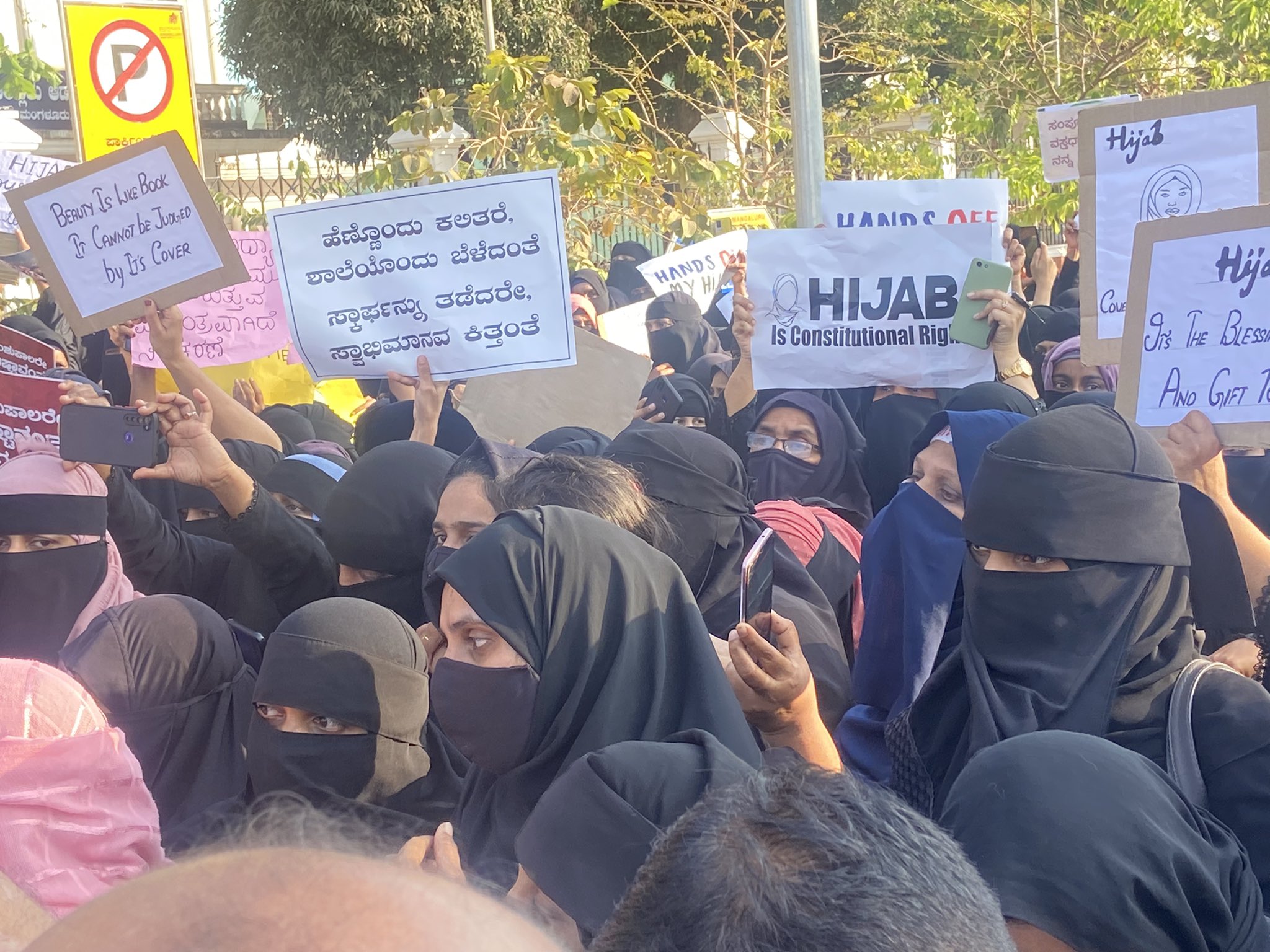The Karnataka government told the High Court on Tuesday that there has been no ban on wearing hijab (headscarf) but only within classrooms and during class hours and that donning it is not mandatory.
The government made the submission in the Karnataka High Court that is hearing a batch of petitions challenging the ban on hijab in educational institutes in the state.
As part of his submissions on behalf of the government, advocate general Prabhuling Navadgi said there is no restriction on wearing hijab on campus, it is only in the classroom and during class hours that the bar has been imposed. “We have a law in the form of Karnataka Educational Institutions. (Classification and Registration) Rules, Rule 11. This rule imposes upon them a reasonable restriction of wearing a particular headgear.”
“Human dignity involves liberty, which involves choice to wear or not to wear. The entire claim of the petitioner is to make compulsion, which goes against the ethos of Constitution. It can't be made compulsory, should be left to the choice of women concerned.”
"As far as private unaided minority institutions are concerned, we are not interfering with the uniform code and have left it to the institutions to decide.
“Whatever is optional is not compulsory. What is not compulsory is not obligatory. What is not obligatory is not essential.” Navadgi cited an earlier ruling in the Mohd Hanif Qureshi case that had considered the issue of whether cattle slaughter restrictions interfered with religious practice. He said the judgment had shown that the sacrifice of cows is not obligatory. “The very fact of an option seems to run counter to an obligatory duty.”
“The right to wear hijab as an Article 19 right can be restricted under Article 19 (2). In the present case, Rule 11 places a reasonable restriction inside the institutions. It is subject to institutional discipline
“Reasonableness of uniform is not in question. This restriction of uniform is upto 17 years, in PU-II. The Education Act's preamble says the formation of secular outlook as an objective.”
“If somebody is coming for a declaration that we want all women of a particular faith to wear (a particular attire), would it not violate the dignity of that person?
A full bench of the high court has been hearing on a day-to-day basis a batch of petitions filed by some Muslim girls challenging the ban on wearing the headscarf in educational institutions.
The court disposed of a writ petition filed by the Karnataka State Minorities Educational Institutions Management Federation recording the AG's statement that the State is not interfering with minority institutions. It further said it will take up petitions seeking clarifications of the interim order.



